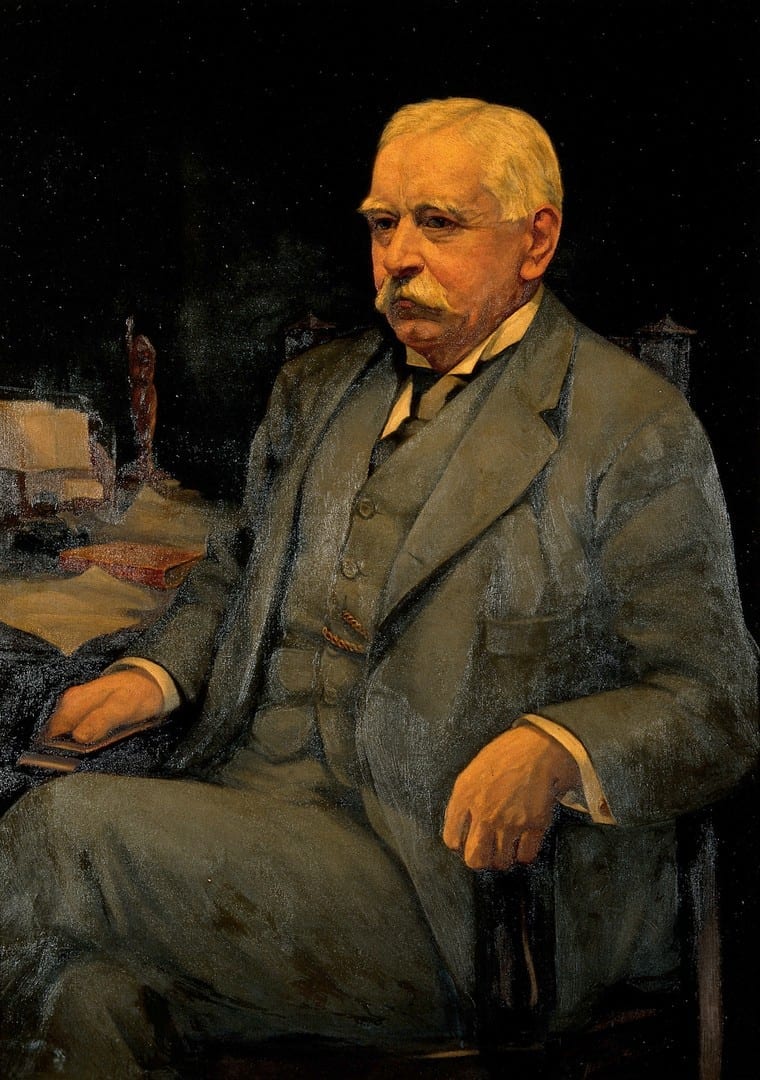Patrick Manson (1844–1922) was born in Aberdeenshire, qualified in medicine from the University of Aberdeen in 1866, and joined the Chinese Imperial Maritime Customs Service as a medical officer with private practice allowed. He developed a successful and profitable general practice in Amoy and Taiwan, and was unusual in possessing a microscope. Keeping this near a window allowed patients to see he was using it to examine his specimens.
His first discovery was finding that filariae were being conveyed from one person to another through the bite of a mosquito, causing the common swelling of the limbs called elephantiasis. Moving to Hong Kong, Manson helped to establish a medical school there that later grew into the University of Hong Kong. He also discovered a new species of schistosoma, later named Schistosoma mansoni.
Returning to Britain in 1890, he opened a consulting tropical medicine practice in London. It had at the back of the consulting rooms an apartment where he could carry out research and examine specimens sent to him from China and Africa. It was there that he inspired Ronald Ross, a young medical doctor in the Indian Medical Service, to work on the new parasite recently discovered by the French physician Alphonse Laveran, leading to the discovery that malaria was transmitted by mosquitos.
Manson’s activities eventually led to the development of a school of tropical medicine. For his quiet organizing skills, his planning, and for being the tireless inspirer of investigators, he has been called “the father of tropical medicine.”
Abstracted from Masters of Medicine by Harley Williams, 1954, p. 190, PAN Books, London
 |
| Sir Patrick Manson, investigator of tropical diseases. Oil painting by Harry Herman Salomon after a photograph. Credit: Wellcome Collection. Attribution 4.0 International (CC BY 4.0) |
Highlighted Vignette Volume 13, Issue 2– Spring 2021
Winter 2021 | Sections | Infectious Diseases

Leave a Reply